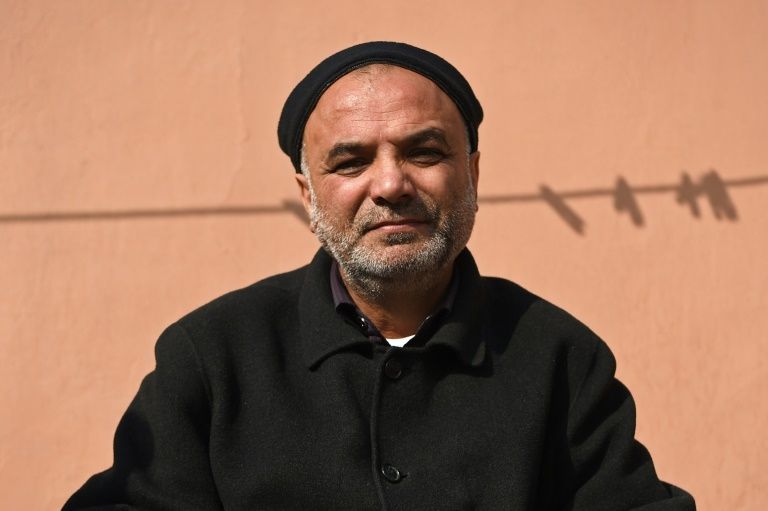Brother of slain Afghan woman judge tells of breakfast ambush horror
Haji Mustafa Herawi, whose sister Zakia Herawi, a judge, was assassinated by gunmen in the Afghan capital Sunday, said the family had no emnity with anyone. ©AFP WAKIL KOHSAR
Kabul (AFP) – The brother of a woman judge assassinated alongside a colleague in the Afghan capital at the weekend told Monday how he heard the deadly shots as he was eating breakfast.
Gunmen on motorbikes shot dead Zakia Herawi Sunday as she was being picked up to go to the Supreme Court, where she was one of 200 women judges working.
“We were having breakfast when we heard the gunshots. My children screamed,” her brother Haji Mustafa Herawi told AFP at the family home in Kabul.
“First, the driver was shot in the shoulder, and then my sister was shot in the forehead.”
A female colleague named Qadria, also a judge, was killed alongside her, officials said.
Fear is gripping the capital following a series of killings of prominent Afghans — including religious scholars, politicians, doctors, journalists and activists.
But Haji Mustafa Herawi told AFP the family had never expected the violence to reach their own doorstep.
“We had no enmity with anyone… We had not received any threats,” he said.
He had no doubt who was to blame for his sister’s murder, although he also criticised the government for the lack of security.
“The Taliban have assassinated my sister,” he said.
“The government has absolutely failed to protect the people. Where is the security?” he added, his voice choking with anger.
Judge Herawi, 47, joined the Supreme Court staff in 1992, but was exiled in Pakistan during the Taliban’s rule from 1996 to 2001.
She returned to Kabul in 2002 soon after the hardline Islamist regime was ousted by a US-led invasion in the wake of the September 11 attacks.
Like many Afghan families, their experience of violence goes back decades. The patriarch of the family was killed in a rocket attack by militiamen of former warlord Gulbuddin Hekmatyar in the 90s, the brother said.
No group has claimed responsibility for Sunday’s killings, but Afghan and US officials have blamed the Taliban.
The current wave of assassinations started in September, around the time the government launched peace talks with the Taliban.
“We have no security in Kabul at all. It’s just a coincidence that you are alive,” said Kabul resident Farman Wesal, who like many Afghans said he was weighing up options to leave the country.
“We do not know where to go… If the situation continues like this we will be forced to flee.”
Afghanistan’s Vice President Amrullah Saleh — tasked with security for Kabul, said targeted killings had surged because militants believed they would be pardoned if caught following a mass prisoner exchange between the warring sides last year.
“The solution is that those who are arrested should be hanged,” he said on Facebook Monday.
On Monday Kabul was rocked by three bombs, in which one person was killed and another wounded, officials said.
Disclaimer: Validity of the above story is for 7 Days from original date of publishing. Source: AFP.


